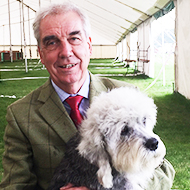
New centre will continue vital research into dog health.
The Kennel Club has confirmed that the Kennel Club Canine Genetics Centre will officially re-open at a new location at the University of Cambridge.
The Kennel Club Canine Genetics Centre was originally opened in 2009 at the Animal Health Trust, which closed last year. During this time researchers developed 25 different DNA tests for canine inherited diseases that affect over 50 breeds. Research into the impact of these tests has shown that, over a ten year period, the frequency of disease-causing genetic variants in some breeds was reduced by 90 per cent.
The new centre will resume its vital research into genetic mutations and the development of breeding tools for some of the most common and debilitating inherited conditions in dogs. The previous centre's collection of more than 40,000 DNA samples has also been transferred to the University of Cambridge.
Dr Cathryn Mellersh, head of the new centre, said: “The last ten years have been incredibly important to dog health and, thanks to the University of Cambridge, especially Professor James Wood, head of the Department of Veterinary Medicine at Cambridge Vet School, for all his assistance in safeguarding our resources and The Kennel Club Charitable Trust, this work can now continue.
“Our work to support breeders in reducing health problems in dogs is essential and we are eager to continue this important work and are thankful to everyone for their support.”
Bill King, chairman of The Kennel Club Charitable Trust, said: “The Kennel Club Genetics Centre has made an enormous positive impact on the health of dogs whilst under the auspices of the Animal Health Trust, the closure of which we were saddened and concerned to learn of last year.
“We’re now thrilled that the centre has found a home in such a reputable and prestigious research institute, and we’re very much looking forward to collaborating with the centre once more.”
Image (c) Bill Moores.



 The Veterinary Medicines Directorate (VMD) is inviting applications from veterinary students to attend a one-week extramural studies (EMS) placement in July 2026.
The Veterinary Medicines Directorate (VMD) is inviting applications from veterinary students to attend a one-week extramural studies (EMS) placement in July 2026.